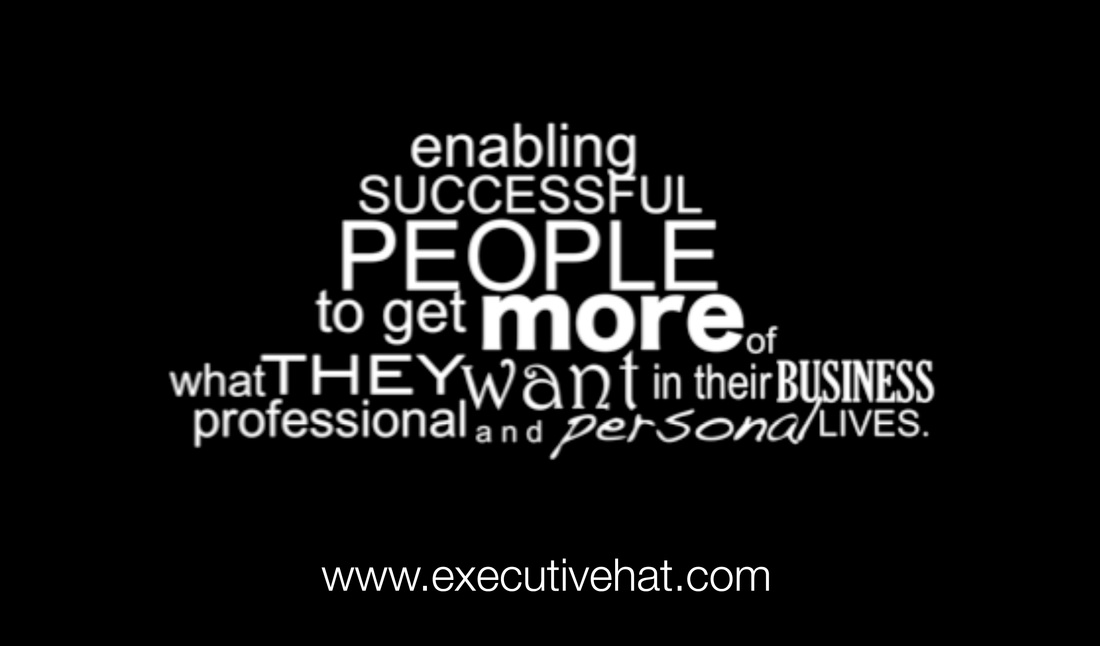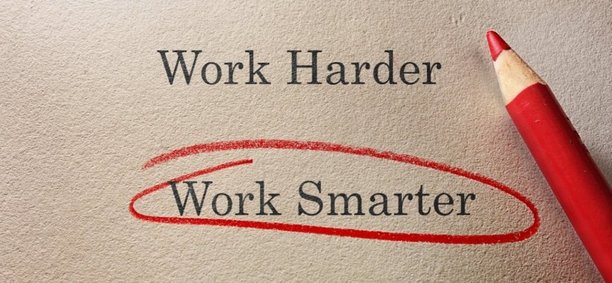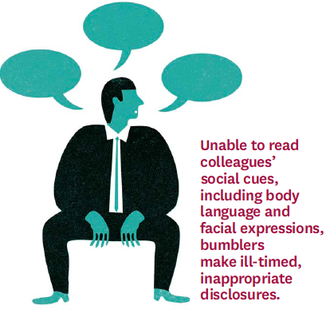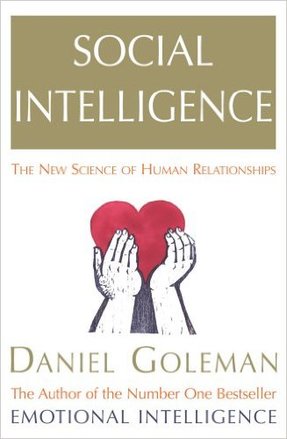|
Summer holidays are just around the corner and as you move through the day-to-day operations of your current role, you may ask yourself as you look forward to the fall and the year ahead, is it time to look for my next step? While it is tempting to just shoot out a copy of your CV when you run into an opportunity, sending out a CV without the preparation may not get the results you desire, and in some cases, may jeopardize future opportunities because it does not clearly represent who you are and what you are seeking. While there are no absolute rules for when you should start seeking your next role, there are some fundamentals that any executive needs to consider when they do decide to explore new opportunities. Both private and corporate executive clients I have worked with over the years have benefited from a quick check up before launching into their search process, and I hope that some of these tips can help you as you consider your next steps. (Hint: It’s not only about getting your papers ready!)
Gaining Clarity in Who You Are Today and What You Seek It is worthwhile before you launch your next steps forward to take an inventory of where you are at as an executive. Who you are is a culmination of your entire career – think of it as a story… from where you started, the turns in the road that you have taken (and why), and how your destination has come into focus. Understanding who you are today and where you are going is the first step in the process. Without this, it is difficult for recruiters or potential hiring organizations to envision you in a potential role. Working through this process, my clients come to have a better understanding of their actual current inventory of skills and competencies, what skills and competencies are required for potential future roles, and what may be some potential paths to gain these critical skills and competencies. I help my clients identify things that they have overlooked as they work me through their story to highlight items that they have not considered to be valuable for their potential future employers. It is also important to be brutally honest with yourself on what you state are your actual skills and competencies – overstating your capabilities could potentially land you a job, but the consequences when you are in the job could pose a major risk and could be devastating to your overall career. I also work my clients through a visualization phase of diverse paths that can help them see that their career need not be a single tunnel – sometimes we as good corporate soldiers continue to take the next “logical” step in career progression, forgetting to lift our heads up to see the broad spectrum of options that can give us far more fulfillment. It is quite interesting as I look back on some of my clients over the past years that have had the courage to take a radically different path than the “logical” one and have grown significantly in their new pursuits with incredible motivation and purpose. Once these alternative paths are laid out, my clients research them to understand better what it would be like to be in one of these roles and some potential career steps to gain the inventory they need to prepare themselves for that journey. We do this in the context of the client’s key values, drivers and boundaries, which may shift over the course of your career and lifetime. By force ranking what are the most important values and drivers to a client, one avoids taking steps that are not congruent to the client, and also prevents the issue of backing out of potential offers after realizing it is not really what the client wants. Ensuring Your CV is in Alignment and Projects What You Want The next step that I work my clients through is to ensure that their CV states clearly and succinctly who they are and why a potential hiring organization should place a bet on hiring them. Working though a CV is a lot more than ensuring there is enough white space and that you don’t mistake bullets for sentences and paragraphs. It is more than about inserting active verbs and key words. It is all about alignment. I use a pyramid method as I screen my client CVs, ensuring that each subsequent section offers more details of their capabilities and that their qualifications are demonstrated concretely through one or more of their previous professional experiences. We look to introduce the “so what” factor in every bullet, ensuring that the CV is not a a list of job descriptions – these are not only numeric quantifications, but can also include why your accomplishment made a difference or why it is relevant and translatable to potential hiring organization. Your CV needs to be customized to emphasize the right elements for specific jobs and organizations (one size fits all is not a principle that works here) and certain industry sectors have common elements that may allow you to transition from one to another while adding tremendous value. We work on ensuring that your CV is understandable for recruiters and external hiring organizations – your internal CV and job titles need to be adapted to meet the target audience. Last but certainly not least, we step back and take a look at the overall work product to assess how it reads, potential gaps or anomalies, and whether or not it accomplishes the desired outcome. Understanding How You Project Yourself in Interviews and Optimize Interactions The final phase that I work through with my clients is the self-preparation phase. Whether for phone interviews, email exchanges, or in person interviews – I work with my clients to gain awareness on how they project themselves, some habits and mannerisms that they may want to adapt, and strategies to overcome potential derailers while they are interacting with recruiters or hiring organizations. While working together in the previous phases, a coach is constantly observing and noting things like how you express yourself, words you choose, how you react under stress, and potential derailer habits that you may not notice yourself. We work to understand what is driving these behaviors and then work to replace them with behaviors that serve you better. We work through a structured thinking approach for a better and more thorough preparation, to organize your information, and to enable quick retrieval of the best examples to demonstrate a point asked by the interviewer. Last but not least, it entails helping clients deal with answering challenging questions with candor and confidence. Considering your next steps in your career is about a lot more than a fishing expedition to see what you might catch by throwing out your CV. Investing in yourself to do it right the first time is well worth the returns of finding the right fit for your next role and potential future organization. In just three simple sessions, which can be done off hours and in privacy away form your day to day operations, you can better prepare yourself to explore the possibilities. If you are interested, click here to arrange a free private consultation at your convenience. For private clients, I offer flexible and discounted solution to fit your needs.  It's refreshing to see more people speaking publicly about their "Dirty Little Secret" - in many companies and country cultures, there are still folks that think seeking support to grow is sign of weakness when instead, it is a strength. I liked this article from Forbes by guest writer Harley Finklestein, COO at Shopify, as he candidly shares his thoughts on how he went from feeling he could do everything by himself to understanding why booking his first appointment with his coach was the smartest business decision he ever made. He also shares how working with his coach helps him in both his business and personal lives. Lastly, if you are curious about the experiences of other executives, you may find something interesting in the Testimonials section of executivehat.com . Have a great weekend! My Dirty Little Secret: I Have an Executive Coach by Harley Finklestein, COO at Shopify to read about other experiences, read more here: executivehat.com/testimonials.html  Thinking about a change? If you are looking to explore opportunities outside your current business, ask yourself: How prepared am I to take this step? What am I looking for? Does my CV project who I am and what I am capable of? How do I ensure that my qualifications and experiences convey to the person in front of me that I will add value to not only to the position but also to their organization? What perceptions do I give during an interview - my choice of words, tone, body language, the examples I choose to highlight when asked a question? This is one of the most frequently requested services from both my private and corporate clients, whether they are seeking new opportunities within their current organization or looking externally to take their next step. The starting point is usually gaining clarity on what position you are seeking for your next step. Unfortunately, there is no clear written rule that states because you have done X & Y in the recent past, the logical next step is Z. We are not "owed" the opportunity to take a given position, One needs to understand in a clear and honest way true capabilities and experiences that are translatable and can add value to a desired position, while at the same time, giving you the opportunity to grow and challenge yourself. Understanding your own personal drivers, the things that you see in your next position that energize you, is another critical element while seeking to make a change. As we mature in our professional careers, it becomes more and more important that we are fulfilling these needs and that this step is congruent with a longer term big picture that you envision for yourself. With regards to presenting ourselves on paper, oftentimes we assume that everything is crystal clear just by listing a chronological account of our past positions, but frequently we overlook the fact that not all experiences are relevant or hold equal weight depending on the position we are seeking. Many CV's list responsibilities within the role without demonstrating the impact you have made while in that position. Impact can be both quantitative as well as qualitative, but regardless, this needs to be clear. The result of not having this is a cacophony of "facts" that do not clearly communicate who you are and what you are capable of contributing that is of value to a position and to an organization. Additionally, if you fail to highlight those skills and experiences that are translatable to the position and organization we are seeking, why would they take a risk to consider hiring you? Last but not least, while we are accomplished executives, oftentimes we underestimate the value of preparing ourselves for the interview itself. Clean neutral observations of how we come across as we speak to the person in front of us can teach us volumes on how to be more effective in getting our message across. Whether it is our choice of words, our tone, body language or how we respond to questions. While we can never fully anticipate what will be asked of us, there are ways to structure your preparation of the key messages that you want to convey in advance. I learned this through many years of preparing for media interviews - regardless of where the interviewer takes you, you need to consistently be able to both respond to their needs and to also get across the points that you would like to make. It is also critical to be comfortable in explaining things that may come across as unusual to the person interviewing you. By working through these elements in advance is a safe zone, the results can be seen in your confidence no matter where the interviewer takes you. If you are interested in learning more, contact me. Have a good week!  In an era where virtually everyone is calling themselves a leader or entrepreneur, how can we distinguish the truly great ones from everyone else? And more importantly, how can we become one of the great ones? Here is an article from Inc Magazine sharing some of the behaviours consistently exhibited by truly authentic leaders. Read the article here: 8 Consistent Behaviors of Highly Authentic Leaders Authentic leaders that truly walk the walk engage in these 8 behaviors every day. by Marissa Levin http://www.inc.com/marissa-levin/8-consistent-behaviors-of-highly-authentic-leaders.html How many of these 19 habits are in your repertoire? I am missing number 19.... I need to give that one a try. Take a look at this article from INC Magazine which reminds us that "Success starts with the little things."
19 Tiny Habits That Lead To Huge Results by Nicolas Cole  As we return from summer holidays, here's a great article from Entrepreneur Magazine to kick start your week. My favorite one: “People often say that motivation doesn’t last. Well, neither does bathing. That’s why we recommend it daily.” -- Zig Ziglar read it all here https://www.entrepreneur.com/article/269908 Welcome back to the office!  from HBR... Are you an "intense attack-mode" junkie? Do you thrive on the adrenaline and caffeine buzz, over-scheduling yourself, and getting things done just in the nick of time, that "productive stress"? Feel like you've run a marathon after a day in the office? Emma Seppala points out that "when sustained over longer periods – chronic stress compromises our immunity, memory, and attention span. In other words, high intensity — whether it’s from negative states like anxiety or positive states like excitement — taxes the body." Then gives us some suggestions on how we can balance ourselves. read the full article here (remember you can read 8 free articles a month on HBR) Your High-Intensity Feelings May Be Tiring You Out https://hbr.org/2016/02/your-high-intensity-feelings-may-be-tiring-you-out  A great article from Inc Magazine highlighting behaviors we see in leaders people WANT to follow. Beyond the title and past positions held, people that consistently and genuinely demonstrate these behaviors go on to accomplish great things. Take a read... 10 Signs You Really Are a Leader (and Might Not Know It) Many times people who influence us the most aren't even aware they are leading us. by Lolly Daskal http://www.inc.com/lolly-daskal/10-signs-you-really-are-a-leader-and-might-not-know-it.html  From Entrepreneur.com Are you seeking to be a leader that people admire, one whose team is motivated and engaged? A leader who faces each day with a smile, no matter what comes, and leaves feeling satisfaction despite the challenges of the day? A nice reminder from Jacqueline Whitmore on the benefits of kindness in our lives and that of those around us. Read the full article here 8 Effortless Ways to Make Kindness Part of Every Day Kindness is Contagious http://www.entrepreneur.com/article/272431  INC Magazine/Getty Images INC Magazine/Getty Images An interesting read published on INC Magazine on scientific proof of how negativity affects our brains. We often practice "venting" in the office, then try to mobilize ourselves back into action and solution-mode. Of course others can spend a greater amount of time expressing dissatisfaction or complaining. What I learned from this article is that perhaps we need to pay attention to how much time we actually spend in this negative space as there may be consequences beyond affecting our own mood or that of our co-workers Something I used to do while in the corporate world was to take a break, take a lap walking around the parking lot of the offices. Maybe you have some different strategies. Read the full article here: Have a great week! Complaining Is Terrible for You, According to Science Steeping yourself in negativity has seriously terrible consequences for your mental and physical health. by Jessica Stillman http://www.inc.com/jessica-stillman/complaining-rewires-your-brain-for-negativity-science-says.html  As a Monday pick-up, here's an interesting question posed on QUORA - How can I Motivate Myself to Work Hard? Here are two responses (links below) one published in INC Magazine by Mathew Jones and another by Nelson Wang on Quora. While there is some overlap in the articles, there are elements in both articles that resonate for me. Have a great week! "Motivation is a lot like happiness; when you look for it as something outside of yourself, it dissipates." 8 Unique Ways to Challenge Yourself to Work Smarter by Matthew Jones Stop complaining and start reframing. http://www.inc.com/quora/8-unique-ways-to-challenge-yourself-to-work-smarter.html Self-Improvement: How can I motivate myself to work hard? by Nelson Wang https://www.quora.com/Self-Improvement/How-can-I-motivate-myself-to-work-hard Before fixing what you are looking at, check what you are looking through… - Mark Nepo, The Book of Awakening  In his book, The Book of Awakening, Mark Nepo speaks about how we see the world using the example of his grandmother looking out through her only window and complaining about how gray the day was, only to realize that the window was dirty. When he discovered this, his grandmother with humor stated, “Got a dirty eye, see a dirty world…. ”Whether it is a dirty window, a pair of glasses with smudges or reflections of something else, or a mood that affects everything that happens to us, he offers a reminder that we see the world as we choose to see it. While we do not control all the events in our lives, we do have the capability to see things as they are, naked of all the baggage we pile on. It’s not only a question of perspective, but perhaps also one of simplicity devoid of assumptions and or expectations. We don’t control the all the events in our lives, but we do choose what we see and how we interpret those events. Finally, we choose what to do in the face of these events. While coaching clients who want to improve how they manage conflict in their professional or personal lives, I often ask my client to walk through an event, step by step, as it is a movie played on a screen in front of them. First observing what is seen, heard, the actual words and motions. As we dive deeper, the client is often surprised when I play back the words used by the client to describe the situation. Or, the client is surprised when I ask whether some portion of the event that was critical in their interpretation came from the scene itself or from something he or she interpreted from a past experience or an expectation. There is something to be said about learning from our past experiences or using our intuition in dealing with the events in front of us. The tricky part is to be aware of what is an assumption or comes from within ourselves and what is actually being done by another person in front of us. When we become aware of our own internal dialogue or assumptions, it is only then that we can put forth those assumptions to check with the other person if that is what they truly intended. Through more simple questions and communication to clarify, some of the conflicts and misunderstandings could perhaps be avoided. The other factor that can dirty our windows, so to speak, can be our beliefs and expectations. Whether in the office or at home, if we expect the worst from someone without giving them the benefit of the doubt, we will for sure end up with an unpleasant experience that reinforces our beliefs about that person. It can make a simple misunderstanding evolve into an overall sentiment that all is terrible with that person, therefore labeling the identity of the person as “bad.” Likewise, we may also miss critical clues if we expect that anything that a given person does is perfect. Later, we can experience an unpleasant surprise because we “did not see it coming.” Another example of this is a senior leader that is preparing to “fight” for his department at a management meeting. Whether for new product development budget or for issues that his department has encountered, by seeing the meeting as a battlefield, the executive found himself in a defensive position, using terms like “my department” and digging his heels, wondering why no one was listening to his ideas and concerns. In doing so, he probably positioned himself as sitting across the table against his peers, rather than sitting together trying to find the best solutions for the business as a whole. After our discussion, he liked the analogy of being in a boat, each leader having an oar, and each oarsman playing a critical role to move the boat forward. It gave him food for thought as he prepared for his next management meeting. Mark Nepo speaks about the window washing in our minds and in our hearts. He asks us to contemplate what are the ideas and conclusions we have in our minds and in our hearts, and how we can wash these windows through which we see the world. It was a great reminder for me, an invitation for me to see things and other people for what and who they are, not as I believe them to be. I hope that it can also offer you an opportunity for reflection. Thanks !  from HBR.org Calming Your Brain During Conflict Four steps to get out of “fight or flight.” by Diane Musho Hamilton "Conflict wreaks havoc on our brains. We are groomed by evolution to protect ourselves whenever we sense a threat. In our modern context, we don’t fight like a badger with a coyote, or run away like a rabbit from a fox. But our basic impulse to protect ourselves is automatic and unconscious....Mindfulness is the perfect awareness technique to employ when a conflict arises — whether it’s at work or home. It allows us to override the conditioned nervous system with conscious awareness. Instead of attacking or recoiling, and later justifying our reactions, we can learn to stay present, participate in regulating our own nervous system, and eventually, develop new, more free and helpful ways of interacting." read the full article here https://hbr.org/2015/12/calming-your-brain-during-conflict  from the Enterprisers Project, download a free pdf of an HBR article I often speak to clients about being authentic while enabling others to gain trust and to engage by getting to know you better as a person, not just as a manager. This article helps illustrate where leaders sometimes fail in their attempt to gain more intimacy with their teams, then puts forth five simple steps to help leaders achieve more effective and authentic disclosure. Starting with self-awareness, relevance, keeping revelations genuine, knowing the context in which you are operating, and finally, what may be too personal. read the full article here Be Yourself, But Carefully Learn how to be authentic without oversharing, by Lisa Rosh and Lynn Offerman https://enterprisersproject.com/resources/be-yourself-carefully  from INC. Magazine As I think to the leaders I have admired over the years, I found that this article hit the spot. I share it with you as something to reflect upon for your own self as a leader - do you recognize these as a part of your daily repertoire? Which areas do you need to re-incorporate into your daily leadership? Want to Be a Highly Respected Boss? 20 Things to Do Every Day Think about the best boss you've ever known. Here are 20 things I'll bet he or she never stopped doing by Bill Murphy Jr.. read the full article here: http://www.inc.com/bill-murphy-jr/want-to-be-a-highly-respected-boss-20-things-to-do-every-day.html  Sometimes my clients struggle to connect with their leadership team members. Everyone is polite, does what they need to do to get the job done, but interactions are polite, brief... there seems to be a lack of engagement. One of the first areas I check is how well does the team really know you - as a person, as a human being, understanding the context of the challenge you face? When I speak of leadership vulnerability, often times the first reaction I get is a fear to show themselves as weak or incapable. Actually, over the years I have learned the opposite. Leaders who can show vulnerability invite a connection and relationship with their team members that is far stronger than a leader who tries to appear perfect and knows all the answers. This article is a great summary of some of the real life experience I have had as a leader myself as well as with my clients. from Entrepreneur Magazine Practice the Magical Strength of Vulnerability by Beth Miller Read the full article here http://www.entrepreneur.com/article/254229  from Entrepreneur.com Stress Literally Shrinks Your Brain. Here Are 7 Ways To Reverse This Effect. by Travis Bradberry "We all know that living under stressful conditions has serious emotional, even physical, consequences. So why do we have so much trouble taking action to reduce our stress levels and improve our lives? Researchers at Yale University finally have the answer. They found that stress reduces the volume of grey matter in the areas of the brain responsible for self-control. So experiencing stress actually makes it more difficult to deal with future stress because it diminishes your ability to take control of the situation, manage your stress and keep things from getting out of control..." read the full article here http://www.entrepreneur.com/article/270629  A very common challenge facing my clients is the overwhelming amount of work they face as they step into the senior executive role. Have you heard of the term "drinking from a fire hose"? Not a very flattering image, yet it can be the perception left with your colleagues and direct reports as you step into your new role. Responding to emails after midnight just doesn't send the message that you are on top of things. In comparison, as I think to leaders that I have aspired to over time, I see a calm and purposeful demeanor, yet they seem to accomplish more and be more knowledgeable than those around them. How do they do it? I like this article by Jacquelyn Smith at Inc. Magazine because it speaks about focus, priorities, creating capacity, and knowing one's own value. A simple yet refreshing read... take a look. from INC. Magazine 3 Qualities that Make High Performers Different from Workaholics While both look like they work hard, high performers have a sustainable work ethic, while workaholics are on the fast track to burnout by Jacquelyn Smith
read the full article here http://www.inc.com/business-insider/what-makes-you-a-high-performer-instead-of-a-workaholic.html  from Strategy+Business An interesting article on Creating a Strategy that Works & Closing the Strategy-to-Execution Gap from Strategy+Business. Oftentimes organizations invest a significant amount on building a strategy that in the end becomes a deck of slides with no real teeth. This article speaks about five unconventional practices for building and using distinctive capabilities. No rocket science here, just a stark reminder of what many of us forget while buried in our daily operational activities. Creating a Strategy that Works The most farsighted enterprises have mastered five unconventional practices for building and using distinctive capabilities by Paul Leinwand and Cesare Mainardi Read the article here http://www.strategy-business.com/article/Creating-a-Strategy-That-Works?gko=d53a6  from LinkedIn Pulse by Daniel Goleman It's a great reminder for leaders... Often times leaders think they are masking what's going on inside, but in the end, your team can feel it. I also believe that your emotions, thoughts and feelings are reflected in what and how you say things to your team. Take this concept of emotional contagion one step further... If you are a leader working until the wee hours of the night responding to emails, jumping from meeting to meeting, without time to stop and catch up with a colleague, how do you think this is affecting the mood of your team? A common challenge facing my senior executive clients... read the article by Daniel Goleman here https://www.linkedin.com/…/glad-mad-sad-teams-catch-leaders…  from HBR.org Secrets of Superbosses How Exceptional Leaders Hire and Hone Talent by Sydney Finkelstein "What do Ralph Lauren, Larry Ellison, Julian Robertson, Jay Chiat, Bill Walsh, George Lucas, Bob Noyce, Lorne Michaels, and Mary Kay Ash have in common? Certainly all of them are known for being talented and successful—even legendary—in their respective fields. All have reputations as innovators who pioneered new business models, products, or services that created billions of dollars in value. But there’s one thing that distinguishes these business icons from their equally famous peers: the ability to groom talent. They didn’t just build organizations; they spotted, trained, and developed a future generation of leaders..." read the article here https://hbr.org/2016/01/secrets-of-the-superbosses?utm_campaign=harvardbiz&utm_source=twitter&utm_medium=social from INC.com
8 Habits of People With Amazing Determination and Willpower How successful people resist temptation, stay focused and determined, and remain resolute in pursuit of their goals. by Jeff Haden "Consistently doing what you need to do to succeed, with total focus and resolve, is incredibly difficult. And that's why the ability to work hard and respond positively to failure and adversity is so crucial. Resolve, willpower, and determination help successful people work hard and stick to their long-term goals..." read the article here http://www.inc.com/jeff-haden/8-habits-of-people-with-exceptional-determination-and-willpower.html from INC. Magazine...
9 Mantras That Will Keep You Mentally Strong in Tough Times The way you think about adversity affects your ability to persevere. by Amy Morin "While it's often easy to be mentally strong when life is going well, your true strength becomes apparent through adversity.... The way you think about life's inevitable obstacles affects your ability to cope with tough times. Developing a productive inner dialogue is one of the most productive ways mentally strong people keep building their mental muscle." read the article here http://www.inc.com/amy-morin/9-mantras-that-will-keep-you-mentally-strong-in-tough-times.html
 from HBR.org The Set-up.to-Fail Syndrome: How bosses create their own poor performers by Jean-Francois Manzoni and Jean-Louis Barsoux "When an employee fails—or even just performs poorly—managers typically do not blame themselves. The employee doesn’t understand the work, a manager might contend. Or the employee isn’t driven to succeed, can’t set priorities, or won’t take direction. Whatever the reason, the problem is assumed to be the employee’s fault—and the employee’s responsibility. But is it? Sometimes, of course, the answer is yes. Some employees are not up to their assigned tasks and never will be, for lack of knowledge, skill, or simple desire. But sometimes—and we would venture to say often—an employee’s poor performance can be blamed largely on his boss...." read more here https://hbr.org/1998/03/the-set-up-to-fail-syndrome |
|
Services |
Company |




